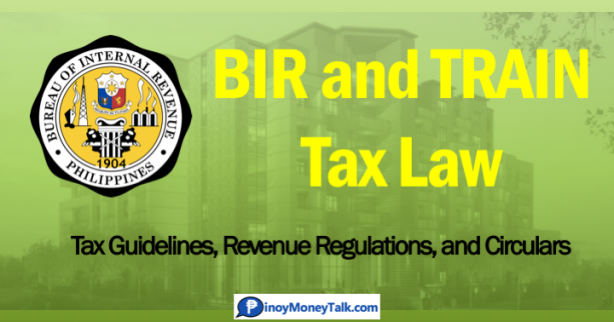The controversial TRAIN (Tax Reform for Acceleration and Inclusion) proposal is now law of the land since this year’s beginning. At least, TRAIN 1, that is. From what I have heard and read, there’s a TRAIN 2, 3, 4, and 5.
The supposed focus of TRAIN 2 is a further reduction in corporate income taxes. But what is this I also hear that not one senator is willing to sponsor said measure? Until known Duterte ally and newly minted Senate President Vicente “TitoSen” Sotto III agreed recently to be the proposal’s champion.
Why the new reluctance compared to the earlier alacrity among legislators to be associated with TRAIN 1? I believe the principal reason is, rightly or wrongly, TRAIN 1 is blamed for the unprecedented inflation that gripped the economy since the beginning of 2018.
Politicians, being politicians, know how to behave specially if elections are near. Sotto is quite bold since he is not up for re-election in May 2019. Senators up for re-election next year like Senator Sonny Angara, who sponsored TRAIN 1, was candid enough to admit that he will not touch TRAIN 2 with the traditional ten-foot pool given the 2019 elections.
Nobody loves taxes and the tax collectors. The latter were often killed and robbed in the ancient days.
Woe to the politician who campaigns for or is associated with a tax increase.

Senator Ralph Recto aka Mr. Vilma Santos
Exhibit A: Senator Ralph Recto, who was not re-elected at some point as he was strongly associated with the increased VAT.
In the final analysis, a tax is an extortion since nobody will pay taxes voluntarily. People have to be coerced to pay taxes and reduce their disposable income. For that reason, Charles Tilly and other scholars of European state building cynically observed that there is not much difference between a neighborhood toughie–who threatens to break a window if the shop-owner does not hand over some cash for ‘protection’–and the state who imposes and collects taxes.

Both the toughie and the state are ‘selling’ the same (public) good–security of life and property–in exchange for money. Both ‘sales’ are involuntary and force (or the threat to use force) underpin them.
In that sense, taxation is an exchange transaction. In exchange for the payment of taxes, citizens get to enjoy public goods.
The capability to free ride is one reason why individuals will not pay taxes if payments were decreed to be paid on a voluntary basis.
While it is indeed an exchange transaction, it is not a straightforward (kaliwaan) one unlike sales involving private goods.
To enjoy a burger, a consumer must first pay before he can have the first bite of the juicy sandwich. That is not the case with taxes.

Charles Tilly
There’s an obvious time lag between the payment of taxes and the ‘consumption’ of a public good. This time lag is another reason why people want to avoid paying taxes.
In addition, taxation may not be a pari passu (equal footing) arrangement. The taxpaying public may not enjoy or obtain the full value of their money since government officials retain the ability to determine the quantity and quality of public goods they will supply.
For example, a concrete road may be built but it may be lacking in the promised length, or built with sub-standard materials, or built over an extremely long period.
Another reason behind the citizens’ reluctance is the impact of taxes on consumer good prices. The payment of taxes already reduces their disposable income. If taxes were increased on key inputs such as fuel, electricity, water,sugar, food packaging, interest income, and the like, these increases will raise consumer goods’ prices and will thus further reduce disposable incomes.
For all these reasons, taxation should be understood as primarily a political act.
The collection of taxes are socially necessary for they fund socially necessary public goods. Without public goods, a human community cannot exist. Thus, the payment of taxes finance human community building.
Government officials, policy makers, and tax collectors must be fully aware of the collective action problems (CAPs) associated with taxes, specially in societies with pronounced poverty and wide income/asset disparities like the Philippines.
The time gap between the collection of taxes and the provision of public goods must be as short as possible.
The quality of public goods must be high and its quantity must be adequate for a growing population.
The collection of taxes must be equitable because none grates the ire of citizens more than the knowledge that some evade or do not pay the rightful amount of taxes.
Last but not least, we must all help develop a healthy tax culture in our country: that we must pay our taxes promptly and properly; that government must provide adequate and high quality public goods; and that both the tax burden and the supply of public goods must be equitable and judicious.
We must also be chastened by the truth that the ability to provide public goods is not the monopoly of governments. Non-state actors can and do provide ‘public’ goods in exchange for ‘payments’ that are akin to taxes.

NPA fighters in parade formation
The ‘revolutionary taxes’ collected by the New People’s Army (NPA) comes to mind in this regard. The ‘kotong’ collected by erring police officers is of the same genre. The Catholic Church and other charities are enabled by donations to provide public goods. Governments must therefore make sure that the tax-public good exchange transactions with their citizens must be as equal and equitable as possible.











